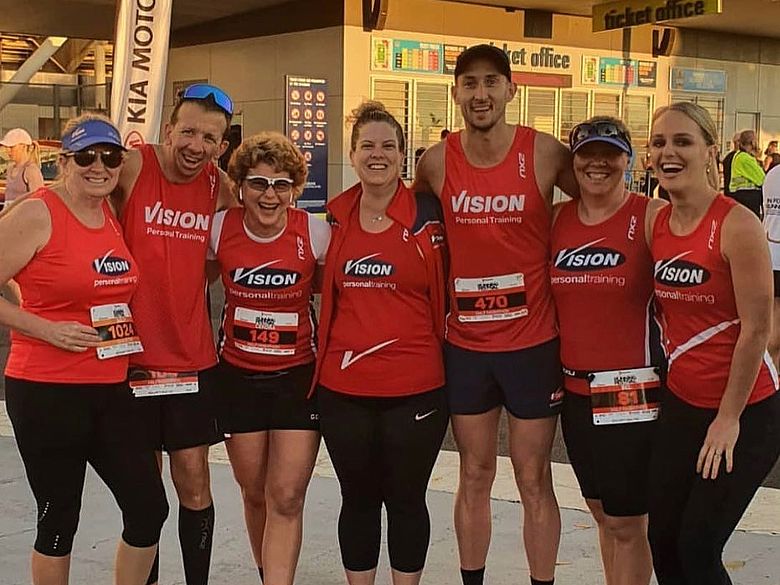Over the years, I've had many clients come to me wanting to set themselves a goal of "becoming a runner" or tackling a running goal. As someone who absolutely loves the challenge, dedication and feeling of improving your running abilities, I love to help these people. I've taken the time to put together a few key pieces of information for anyone wanting to get into running, to ensure they can have the same long term enjoyment and success that I've found through running.
- Find a coach or get a plan made for you. One of the most common things people struggle with when beginning running is overuse injuries, not allowing a long enough time to build to a goal or not varying intensity between sessions to ensure adequate progression. By finding a coach who can build a plan specifically to you or by finding a plan online is key. Having someone to measure your progression and give objective feedback on your sessions will allow you be guided and kept accountable, progressing with running is all about consistency and layering session after session. Without a plan you are running with no clear objective.
- Ensure your plan is varied with speed work, recovery runs and longer aerobic work. Regardless of the distance of your goal event, all running programs should have a good mix of the above sessions. Many novice runners will run the same distance and intensity over and over and get frustrated with little to no progression. Up to 80% of your sessions should actually be at a lower intensity than your goal race, longer aerobic work is designed to build your aerobic base, meaning your ability to uptake oxygen whilst running and get your body used to spending longer periods of time running and adapt to time on the feet. These long aerobic sessions often can be as long or longer in duration of your actual goal event, but lower in intensity. Speed work/tempo/interval sessions are all designed to be at race pace or above, the idea is to get the body used to working at a higher intensity and utilizing different energy systems of the body. These sessions you need to be feeling fresh and strong, to be able to push the limits and improve that top end fitness. Recovery runs are vital also, these slow easy runs are designed to help push blood around the body, actually helping recovery whilst still working the aerobic system. These runs should be at a much slower pace than your aerobic runs. By combining these different type of sessions, your chances of improving are much higher
- Follow the plan! If you have a perfect plan, follow it! More often than not, overuse injuries/bone stress/ soft tissue injuries occur when too much overload has been applied week on week, you miss a session and try to "make it up" with a double the following day etc. This is a recipe for disaster and will mean you will slip further backwards in the long run, rather than continually making small progress with your fitness.
- Nutrition is as important as any other fitness or body composition goal. Often as people start longer distance training, they think it's a licence to eat whatever they want with the idea they will "burn it all off". Whilst the nutritional demands of endurance training is significantly higher, it's just as important to get your nutrition right as any other goal. Ever have a big pasta meal, then feel terribly sluggish for a couple of hours afterwards? This is exactly the same with running training. It's vital to balance your intake around key sessions and getting enough fuel for your runs. For example on a long run day early in the morning, it's a great idea to have a small easily broken down snack for breakfast that won't sit in the stomach and then for the duration of the long run be fuelling with a carbohydrate rich drink or gel to ensure enough energy to achieve the goal of the run for the day. It's a delicate balance of not feeling heavy and full, whilst also having enough fuel.

